- Travel insurance Compare our plans Popular benefits COVID-19 benefits International plans Domestic plans Comprehensive insurance Annual multi-trip Inbound plan Business Cruise Adventure activities Medical conditions
- Travel alerts Cover-More app
- Emergency assistance
- Not sure? See full destination list.

FAQs: Cruise travel insurance benefits

Protect your cruise holiday from medical expenses and more
Cruises are a popular holiday option for many New Zealand residents, both domestically and aboard. But did you know that even if you don't leave New Zealand waters, you'll still need specific cruise cover included in your Cover-More travel insurance policy?
To help you plan - and protect - your cruise, we’ve put together a list of frequently asked questions about our Cover-More cruise insurance benefits.
For more helpful information about our cruise travel insurance benefits and how to purchase a policy with cruise benefits included, visit our cruise travel insurance benefits page.
Skip to read:
Do I need to buy Cover-More cruise insurance benefits separately?
When’s the best time to purchase cover-more's cruise insurance benefits, can i buy cover-more cruise insurance benefits once i’m on my cruise, what cover-more policy do i need if my cruise stops in multiple destinations.
- When don’t I need to add Cover-More's Cruise Cover to my policy?
- Am I covered if I get sick on the cruise?
- Am I covered if I become ill with COVID-19 while on a cruise?
Does Cover-More travel insurance cover me if I – or my luggage – miss the boat?
- Does Cover-More cover non-refundable expenses?
- Does Cover-More cover if I my ship misses a stop?
When generating a Cover-More travel insurance quote – the first step in buying our cover – you will be asked if you are travelling on a sea or ocean cruise for two or more nights (This is not required for cruises that remain within Australia New Zealand Internal Waters, the Territorial Sea of New Zealand or for travelling on a river cruise ). An additional premium will be applied to your policy and the Cruise Cover benefits will be available once the premium is paid and the Certificate of Insurance issued.
To buy cover for a domestic cruise in New Zealand, enter or select “DNew Zealand” as the destination in the quote box.
To buy cover for an international cruise, select the country or countries as your destination, and answer the cruise question when prompted.
Before protecting your trip with our Cover-More cruise insurance benefits, please read the Policy Wording to ensure our product is right for you.
At Cover-More, we recommend you purchase travel insurance as soon as you’ve booked your trip to help protect against incidents before you even leave home.
If you include a level of cancellation cover on your policy and have told us you are going on a sea or ocean-going cruise for two or more nights, and have paid the additional premium, the cancellation benefits will apply to your cruise as well.
For information on our optional cancellation cover, please read the Policy Wording .
You can also get a quote online now.
No. For cruise benefits to apply, your travel insurance policy must include our Cruise Cover and must be purchased before you leave home. This also includes before you catch any flights or transportation required to get to your departing port.
To find out how much it costs to include our Cover-More cruise insurance benefits in your travel insurance policy, get a quote online now.
When generating your Cover-More travel insurance quote , you can select multiple destinations under “Where are you going?”.
Then, when prompted, you must answer yes to the question around travelling on a sea or ocean-going cruise for two or more nights, and pay the additional premium, for the cruise cover benefits to be applied to your policy for cover while you’re on board a cruise.
If you need further assistance with protecting your multi-country cruise, call us on (0800) 500 225.
When don’t I need to add Cover-More's Cruise Cover?
There are some scenarios when you don’t need to tell us you are going on a cruise of two or more nights. If you are:
- travelling on a river cruise
- not travelling on a cruise ship on the sea or ocean
- on a cruise for only one night
- only taking a ferry trip
- only cruising in New Zealand or international rivers (e.g. on the Murray River, the Rhine or the Danube River)
- sailing (note: sailing is not covered in international waters)
…then our Cruise Cover is not required.
Do Cover-More cruise insurance benefits cover me if I get sick on board the cruise?
Cruise ships do offer medical assistance, but the medics are only there to stabilise your condition.
If you require urgent medical attention, you may need to be evacuated from your cruise and taken to the hospital.
Our Cruise Cover benefits offer onboard medical and emergency dental cover, and ship to shore medical cover. This means if you get sick or injured, we can help.
Contact our 24-hour Emergency Assistance team as soon as possible if you are hospitalised while on a cruise.
Do Cover-More cruise insurance benefits cover me if I become ill with COVID-19 while on a cruise?
Our Cruise Cover benefit includes cover for onboard emergency medical and dental expenses and ship-to-shore medical expenses incurred by travellers on multi-night cruises. If you fall ill with COVID-19 while on board a cruise, we can help you financially and provide emergency assistance support if required.
For more information on what is and isn’t covered regarding COVID-19 while you’re on a multi-night cruise, please read the Policy Wording . For example, it’s important to know there is no cover for any cabin confinement claims related to COVID-19 – even if Cruise Cover is included in your policy.
If you miss the boat because of a delayed connection, our Cruise Cover option may be able to set you on your way again.
If the cruise ship takes off without your bags and your Cover-More policy includes our Cruise Cover option, our delayed luggage cover can reimburse you for any reasonable expenses incurred to replace delayed items.
Travelling with expensive items? Additional cover may be required if you want those high-priced items insured. This extra level of cover can be added to your policy when you purchase it.
For more information regarding our delayed luggage cover and benefit limits, read the Policy Wording .
Does Cover-More travel insurance cover non-refundable expenses?
If sudden illness, injury, or an unexpected weather event prevents you from experiencing your cruise, our Cover-More travel insurance with Cruise Cover benefits can help. This includes providing cover for non-refundable, unused, prepaid expenses such as deposits or onshore bookings up to the level of cancellation cover you have added to your policy.
Note: the benefit limit for cruise cancellation depends on the cover chosen when buying your policy. Please read the Policy Wording for details.
Do Cover-More cruise insurance benefits cover me if my ship misses a stop?
Unfortunately, we do not cover claims resulting from lack of enjoyment. If your ship is unable to visit a port, we will not be able to compensate you for loss of enjoyment.
Depending on the cover purchased and the circumstances of a claim, we may be able to cover cancellation of non-refundable, prepaid onshore tours.
Ready to book your cruise?
Find out how Cover-More cruise insurance benefits can protect your holiday.
- Already Booked
- Travel Insurance
Learn more about travel insurance here.
Sail the seas with peace of mind knowing you are covered with support and assistance should you need it.
Ensure you are covered for general medical expenses overseas, existing medical conditions, hospitalisation and medical evacuations. We strongly recommend that you purchase appropriate international travel insurance for your Carnival cruise.
Australian Domestic Cruises
Please note, International travel insurance is recommended on Australian coastal cruises, as your cruise is outside the scope of Australian Medicare.
Special note for New Caledonia
Guests traveling on a South Pacific cruise that calls on New Caledonia (Noumea or Lifou) must present printed proof of travel insurance at time of check-in. The selected international travel insurance must have cruise coverage. Guests may also be requested to present it during the cruise. Any guest who is unable to provide proof of holding suitable travel insurance will be denied boarding.
Our Recommended Partner
With nearly thirty years of experience and more than 2.2 million journeys every year, Cover-More knows what travellers need.
That's why Carnival Cruise Line recommends Cover-More Travel Insurance for guests from Australia, which covers general medical expenses overseas, hospitalisation and more so you can avoid unforeseen expenses. Some Cover-More benefits do not apply to claims involving travel on our cruises. For example, there is no cover for medical expenses if you are diagnosed with COVID-19 on or after a cruise. It is your sole responsibility to read the PDS for details of what cover is included BEFORE purchasing any insurance products.
For Cover-More's COVID-19 FAQs read here .
Be aware when organising your insurance that uninsured travellers (or their families) are held personally liable for cancellation, medical and associated costs incurred at any time whether before the cruise, on board or overseas.
Hospitalisation costs on board or outside of the country and medical evacuation costs are very expensive and are not covered by Medicare or private health insurance. Daily hospital bills can cost as much as AUD 5,000 per day. All consultations, treatments and medications are charged at private rates.
If you plan on participating in sports such as scuba diving or parasailing, ensure your policy covers these activities.
- For Australian guests , obtain a quote here with Cover-More Travel Insurance
For more information, please see the Department of Foreign Affairs website at smartraveller.gov.au .
Disclosure: Carnival Cruise Line has a referral arrangement with Cover-More and may receive a fee or commission if you choose to purchase an insurance product from Cover-More. Limits, sub-limits, conditions and exclusions apply. Insurance administered by Cover-More Insurance Services Pty Ltd (ABN 95 003 114 145, AFSL 241713) on behalf of the product issuer, Zurich Australian Insurance Limited [ABN 13 000 296 640, AFSL 232507). Any advice is general advice only. Please consider your financial situation, needs and objectives and read the Combined FSG/PDS before deciding to buy this insurance. For information on the Target Market and Target Market Determination for these products, contact Cover-More on 1300 77 88 22
Already booked?
Find more information for guests:
- Online Check-In
- Travel Requirements
- Port Information
- What to Pack
- Life Onboard
Need some help?
Call to speak with one of our agents:
- Australia : 1300 385 625
- New Zealand : 0800 442 095

Travel Insurance for a Cruise
The appeal of cruises is that so many of the activities and amenities are included for you. But you may want to add cruise insurance to your packing list.
You may not always be required to have travel insurance for a cruise, but having cruise travel insurance may ease your mind if an unforeseen event were to occur on your trip.
What Is Cruise Travel Insurance?
Cruise travel insurance is an added layer of coverage to your travel plans, specifically geared toward cruise trips. It is a type of insurance you would purchase specifically geared to protect against cruise-specific incidents:
- Port-of-call itinerary changes made by the cruise line
- Last-minute cancellations made by the cruise line
- Ship mechanical problems or breakdowns
- Disruptions to shipboard services
- Missed port connection
Where travel insurance covers protection against injury or illness, expenses for lost luggage, or cancellations, cruise travel insurance covers those, plus events that may happen on your cruise. Cruise insurance typically covers:
- Trip interruptions
- Trip cancellations
- Medical evacuations or emergencies
- Sickness or injury
- Ship disablement
- Lost luggage
- Missed connection
- Inclement Weather
Cruise insurance covers prepaid, non-refundable expenses such as airfare, hotels, and expedition deposits.
Does Cruise Travel Insurance Cover My Flight?
Yes! AXA’s Travel Protection plans can offer coverage for certain prepaid, non-refundable expenses, such as airfare, associated with your cruise.
Is Cruise Travel Insurance Mandatory?
Not always. Cruise insurance may not always be required; some carriers may allow you to board without it. Emergencies can occur anywhere, anytime, and you don’t want to be without coverage if any unfortunate situation arises on your cruise trip (or before it).
Do I need Travel Insurance for Domestic Cruises?
Your cruise line may or may not require travel insurance to cover your medical expenses and emergency evacuations, but there can be several other situations that may warrant travel insurance. These include last-minute cancellations or unforeseen events like bad weather, ship breakdowns causing significant delays, itinerary changes, or missing your ship.
Does AXA Travel Insurance Cover Cruises?
Yes, AXA offers travel protection plans for cruises. AXA’s Silver, Gold, and Platinum plans offer travel protection benefits to help cruisers steer with peace of mind on their next cruise voyage. The specific coverage provided can vary depending on the plan you choose, but some of the common coverages that may be included in AXA Travel Protection Plans for cruises are:
- Trip Cancellation: This coverage can reimburse you for non-refundable expenses if you have to cancel your cruise due to a covered reason such as illness or injury.
- Trip Interruption: This coverage can provide reimbursement for unused portions of your cruise if you have to interrupt your trip due to a covered reason, such as a medical emergency.
- Emergency Medical and Dental Expenses: This coverage may assist with payment for medical or dental expenses incurred while on your cruise due to illness or injury due to a covered reason.
- Emergency Evacuation: This coverage may include payment for emergency medical transportation to the nearest appropriate medical facility due to a covered reason such as illness or injury while on your cruise and require medical attention that is not available on the ship.
- Baggage Loss or Delay: This coverage can reimburse you for the cost of replacing lost or delayed baggage.
- COVID coverage: If your trip is interrupted or even canceled due to COVID, our plans covers unused prepaid expenses.
- 24/7 Assistance Services: AXA’s travel plans also include 24/7 assistance services, such as travel and medical assistance, concierge services, and emergency travel services, which can be helpful if you need assistance during your cruise.
GET YOUR FREE QUOTE
Disclaimer: It's important to note that the specific coverage and terms and conditions of each plan can vary, so it's a good idea to review the policy documents carefully to understand the coverage provided and any exclusions or limitations that may apply
How Does Crusie Travel Insurance Work?
Like other travel insurance plans, you need to be sure you purchase cruise insurance well before your trip. Most agencies recommend you purchase within 14 days of paying for your trip deposit. The earlier you buy insurance, the greater your coverage window.
And, like other travel insurance, you’re offered reimbursement or protection against covered incidents. Talk with a licensed agent today to get specifics for your plan’s notification window.
How Much Does Cruise Insurance Cost?
You can expect cruise insurance to run around 5-8% of your total trip prepaid expense cost.
Other Things to Consider
Like any other type of insurance, buying a policy for your cruise trip requires taking a close look at it to ensure it offers what you need. Here are a few key things you must consider:
Does your health insurance cover medical expenses onboard a ship?
Many people assume that their health insurance will cover any medical expenses that may be incurred on domestic cruises—but this isn’t always the rule. Some insurance providers do not offer medical coverage onboard a ship or if it is an international cruise. Be sure to check with your healthcare insurance provider before departing.
Do you or your traveling companion have a pre-existing condition?
AXA offers coverage for pre-existing medical conditions with the Gold and Platinum plans. The availability and terms of coverage for pre-existing medical conditions may vary depending on the specific plan you choose, the nature of your condition, and your state of residency. If you have a pre-existing medical condition and wish to obtain coverage under an AXA travel protection plan, you will need to meet certain criteria:
- Your pre-existing medical condition was diagnosed 60 days prior to your effective policy date
- Your premium for pre-existing medical coverage is received within the time-sensitive period of 14 days of the initial trip deposit date
- You are medically able to travel on your departure date
Travel Insurance & Credit Cards
Many major credit card companies offer travel protections, such as trip cancellation or trip interruption reimbursement benefits. In fact, many people even redeem credit card points to fund their travel.
However, it’s important to note that cruise travel insurance offers additional protection that isn’t covered by your basic credit card benefit. AXA’s travel protection plans offer the ability to cancel for any reason, with greater coverage protection against claims for baggage loss, medical claims, or missed connections.
How Do I Get Cruise Insurance?
Check out AXA’s Travel Plan Guide to see which plan is right for you.
Need Help Choosing a Plan?
Speak with one of our licensed representatives or our 24/7 multilingual Insurance advisors to find the coverage you need for your next trip. From Medical Coverage to Trip Cancellation protection, our team of travel experts will help you choose the right coverage. Receive a free quote within minutes Or call us at 855-327-1441 to speak with our licensed Travel Insurance Advisors. Monday-Saturday, 8AM-7PM Central Time Also see: Plan Comparison Table | Silver Plan | Gold Plan | Platinum Plan
Disclaimer
AXA Assistance cannot guarantee the availability of assistance services everywhere or under all conditions, as there may be times when circumstances beyond AXA’s control hinder its endeavors to provide services.
The insurance benefits in the Silver, Gold and Platinum plans are underwritten by Nationwide Mutual Insurance Company and affiliated companies including Nationwide Life Insurance Company, Columbus, Ohio. Benefits are administered by AXA Assistance USA, Inc. (in California, doing business as AXA Assistance Insurance Services, License Number 0H74893). Non-insurance assistance services are provided by AXA Assistance USA, Inc. and are not underwritten by Nationwide Mutual Insurance Company.
AXA already looks after millions of people around the world
With our travel insurance we can take great care of you too
Get AXA Travel Insurance and travel worry free!

Speak with one of our licensed representatives or our 24/7 multilingual insurance advisors to find the coverage you need for your next trip.

Travel Insurance for Cruisers: Expert Tips from Experienced Cruisers
- August 5, 2024
- Cruise Planning
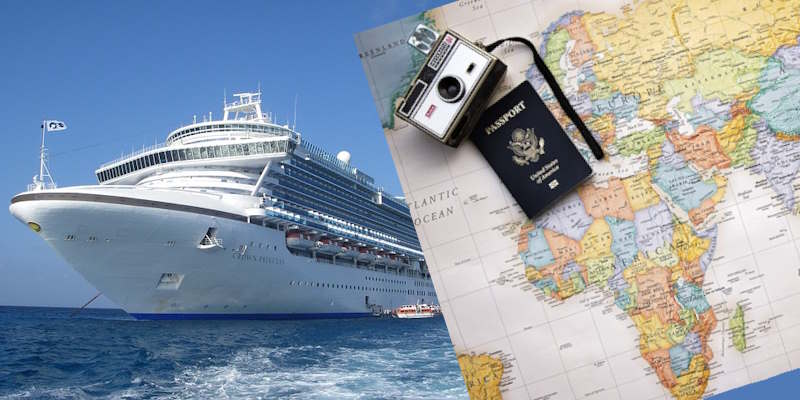
Booking travel insurance for your cruise protects you financially from any unforeseen events. Imagine counting down the days to your dream cruise, only to face a setback—an unexpected illness forces you to cancel at the last minute. Your dream exotic cruise turns into a nightmare. You have the disappointment of missing the cruise and a substantial financial loss.
Cruise travel insurance is your financial safety net, ensuring peace of mind before and during your vacation. It covers a wide range of unexpected events, from trip cancellations to medical emergencies, itinerary changes, and natural disasters. Think about your disappointment if bad weather caused flight delays and you missed the cruise ship’s departure. Cruise travel insurance can cover many of these scenarios, but coverage varies by policy and provider.
I’ll explore the essential aspects of travel insurance for a cruise vacation in this comprehensive guide. Based on personal experience, extensive research, and advice from other passengers, I hope to give the best recommendations on decisions about cruise travel insurance.
Should You Buy Travel Insurance for Your Cruise?

From my experience, booking travel insurance for cruise vacations is always recommended. It has saved me from significant financial losses and stress multiple times. Cruise insurance plans are tailored specifically for cruising, offering coverage for medical expenses, flight delays, and trip interruptions. They also cover ship evacuations and missing your cruise departure. I’ve found peace of mind knowing I’m protected against unexpected mishaps.
Of course, travel insurance policies differ between insurance companies. So remember to read the terms and coverage options of insurance plans carefully. Knowing your coverage limit, coverage for pre-existing medical conditions, and trip cancellation policies is crucial.
Eleven Reasons Why Travel Insurance is Essential for Cruisers
Cruising isn’t always smooth sailing, and travel insurance is the best way to calm choppy waters when things don’t go to plan. Most travelers agree that a comprehensive travel insurance policy is the best way to provide financial protection and peace of mind against unexpected disruptions on a cruise.
Here are eleven reasons a cruise insurance policy is vital for your next trip.
1. Last-minute cancellation and interruption
Travel insurance coverage for a cruise should include cancellation and trip interruption insurance. I remember when a family emergency forced me to cancel my cruise at the last minute. Without trip cancellation coverage, I would have lost the entire cost of my trip.
Many cruise lines offer partial refunds or credit for cancellations with less than 75 days before the departure date. However, you may lose all your money if you cancel less than 30 days before departure.
Trip cancellation insurance covers nonrefundable trip expenses due to a legitimate reason for canceling your cruise. For example, Allianz Travel Insurance lists reasons for trip cancellation, including the death of a family member or traveling companion, natural disaster, terrorist activity, accident on the way to the departure port, or divorce. However, it is important to verify specific policy details as not all policies cover all these scenarios.
Trip interruption coverage refers to legitimate reasons to return home before the cruise ends. The reasons for trip interruptions are generally similar to reasons for trip cancellations. The coverage can reimburse the total trip cost, depending on the policy.
I’ve seen that cruise line operators also offer trip cancellation or interruption coverage as an add-on. But after looking closely at the terms and conditions, I saw their coverage wasn’t great. It’s usually more limited than private travel insurance, and they rarely reimburse the entire trip’s cost.
Without the coverage, you’d be liable for all transportation costs to return home, which may include a helicopter flight from the cruise ship.
2. Emergency dental and medical assistance

Coverage for emergency medical treatment and costs is a lifesaver on a cruise ship. As you’re enjoying a tropical cocktail on the lido deck, the last thing on your mind is a medical crisis. However, onboard medical problems can happen quickly, and medical costs skyrocket.
Medical coverage pays for expenses during the trip, including onboard evaluation, treatment, and evacuation if necessary. According to Allianz Global Assistance, 53% of all cruise-related insurance claims are due to illness, highlighting the importance of having medical coverage while on a cruise.
It’s important to note that many national health insurance plans, including Medicare in the U.S., do not cover medical expenses when a ship is more than six hours from a U.S. port. The CDC reports that evacuation back to the U.S. can cost up to $250,000.
According to Squaremouth travel insurance, one in five medical insurance plan payouts are related to medical bills, costing an average of $736.56. The highest in 2022 was $18,847.91.
Medical expense coverage ensures you can enjoy your cruise without worrying about unexpected medical bills, allowing you to focus on creating unforgettable memories.
Repatriation coverage
In the unfortunate event of a death while on a cruise, repatriation coverage becomes crucial. This coverage includes the costs associated with returning the deceased’s body to their home country. Without this coverage, the financial burden of repatriation can be overwhelming for the deceased’s family, with costs often reaching thousands of dollars.
3. When you miss the boat

Missing embarkation at your departure point or port of call can be a cruiser’s worst nightmare. Therefore, ensure your cruise insurance plan includes coverage for missing the ship. Imagine sitting in the airport, and your flight is delayed, causing you to miss the cruise departure. Or your shore excursion taxi breaks down, and you cannot get to the port on time.
When I researched this topic, I came across several forum posts where travelers shared their experiences: “Getting the right cruise insurance can cover your travel expenses if you miss your cruise and need to catch up at the next port. This coverage has saved my vacation before, making the cost of cruise travel insurance totally worth it. Additionally, the insurance offers 24-hour assistance to help coordinate the logistics.”.
4. Cancel for Any Reason (CFAR)
CAFR (Cancel for Any Reason) is a type of travel insurance for cruise trips that allows policyholders to cancel their trip for any reason not covered by standard policies and still receive partial reimbursement. It provides greater flexibility and peace of mind, especially for unexpected events.
One cruiser shared their experience: “Cancel for Any Reason coverage has been a game-changer for me. When I had to cancel a cruise at the last minute due to an unexpected event, CFAR coverage reimbursed 75 percent of my trip costs. It was a financial lifesaver, turning a stressful situation into a minor setback.”
Standard policies do not typically cover this type of cancellation. The best insurance policies reimburse up to three-quarters of your entire trip costs.
Talking with other passengers about their experiences let me see how valuable the coverage can be. Reasons I’ve heard from other cruisers for using CFAR include the following:
- Fear of travel due to wildfires, lousy weather, pandemics, or unrest in the destination country
- Conflicting plans
- Passport issues
- A traveling companion’s inability to travel.
Standard travel insurance policies typically cover cancellations for specific, predefined reasons such as illness, injury, or severe weather. However, they generally do not cover cancellations for reasons outside these predefined events. According to insurance industry experts and sources such as Squaremouth and Business Insider, adding Cancel for Any Reason (CFAR) coverage generally increases the premium by about 40-50% compared to standard travel insurance policies. For example, on a standard travel insurance policy that costs $200, you should expect to pay an additional $80 to $100 for CFAR coverage.
5. Adventure activities

Are you planning on scuba diving, jet skiing, parachuting, caving, or bungee cord jumping on a shore excursion? If so, ensure that you have medical insurance coverage for extreme sports or dangerous activities. Standard cruise insurance doesn’t include medical coverage for injuries sustained while participating in high-risk pursuits.
It’s worth shopping around before booking a comprehensive travel insurance plan for high-risk activities. I’ve found that prices between travel insurance companies vary significantly for extreme adventures. Sometimes, you might get a better deal through a specialist insurance company specializing in certain activities.
6. Baggage insurance
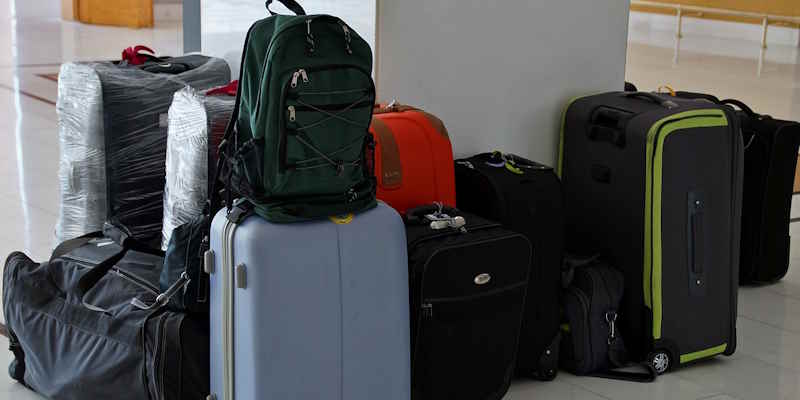
Can you picture yourself arriving at your dream destination only to find that your luggage didn’t make the trip? Once, I arrived at my cruise destination only to discover my luggage was lost. My travel insurance covered the cost of essential items until my luggage arrived. The relief was tremendous, knowing I wouldn’t be out of pocket for essentials.
This experience taught me to always include coverage for baggage delays in my travel insurance policy.
7. Natural disasters and weather disruptions
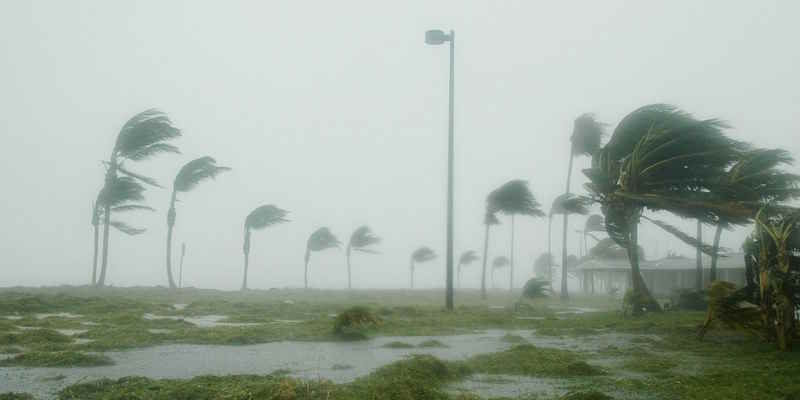
Imagine enjoying a dream Caribbean cruise only to suffer severe disruption due to an unseasonal hurricane. A friend on a Caribbean cruise faced severe disruption due to an unexpected hurricane. Her insurance covered the unused portion of her trip costs, helped book extra hotel stays, and paid out compensation.
Adding natural disaster coverage to a trip cancellation policy can offer the following protection:
- Trip cancellation or interruption
- Non-medical evacuation
- Travel delays or missed connections due to severe weather
It’s good to note that cancel-for-any-reason insurance policies can be helpful when planning a cheap cruise in the Caribbean during hurricane season .
8. Job loss protection

Most comprehensive travel insurance plans include employment layoff clauses. Personally, I’ve never had to use this as I’m self-employed and work remotely. A colleague of mine did. He lost his job just before a planned cruise, and his travel insurance reimbursed him for nonrefundable trip expenses, offering financial relief during a difficult time.
Some travel policies require you to have been in continuous employment for a certain period, often around one year, but this can vary between policies and providers.
When researching cruise travel insurance plans, I also discovered other job-related policies that may be useful for you. These cancel-for-work reasons include the following:
- Your boss requires you to work during a previously scheduled trip
- You must relocate over 250 miles to a new location to keep your job
- Unforeseen job obligations prevent you from going on the cruise
As with all insurance policies, check the small print to see the coverage details related to cancel-for-work reasons.
9. Family member’s illness

An illness in the family can derail even the best-laid travel plans. A comprehensive cruise insurance policy should cover costs for canceling or interrupting your voyage due to a serious medical crisis in your family. This type of coverage has helped countless travelers prioritize their families without worrying about losing their vacation investment.
10. Cruise disablement coverage

Cruise disablement coverage typically refers to compensation if the ship experiences mechanical failure or other issues that disrupt the cruise. Imagine being confined to the vessel or your cabin without food, power, restrooms, or water. In that case, insurance companies like Berkshire Hathaway Travel Protection compensate you up to $500.
11. Peace of mind
One of the most significant benefits of cruise insurance is the peace of mind it provides. Let’s face it: cruises are not cheap vacations, and in many cases, you must pay nonrefundable deposits many months before departure to secure the best prices. Insuring your cruise means you don’t have to worry if unexpected events occur.
Take the case of a seasoned cruiser who once faced a sudden medical emergency onboard. Comprehensive insurance covered all medical expenses, allowing them to access the best treatment with financial worries.
Another traveler shared how their insurance reimbursed them for a canceled trip due to a family emergency, sparing them from a substantial loss.
Having cruise insurance means relaxing and enjoying your vacation, knowing you’re protected against any unexpected events. This assurance transforms potential stress into complete peace of mind.
Is Cruise Insurance Worth It?
From my experience, cruise insurance is always worth it. After all, cruises aren’t cheap, even if I get a great deal on the cruise fare . I’ve always found that travel insurance is affordable compared to the enormous out-of-pocket expenses for onboard medical care, emergency evacuation, canceling a trip, or baggage delay.
Where to Find Cruise Travel Insurance
Thanks to the right cruise travel insurance, I’ve always enjoyed worry-free cruises, even when unexpected issues arose. I’ve also seen how other passengers who don’t have sufficient insurance coverage get stressed out when things don’t go to plan. Most cruisers agree that accessing onboard emergency medical attention is extremely expensive, making medical insurance crucial.
When choosing travel insurance for a cruise, you typically have three options. Here’s what has been my experience with each.
Third-party insurance companies
Third-party insurance companies usually provide the most robust coverage. For example, policies from providers like AIG Travel, Allianz Travel Insurance, and Travelex Insurance often include benefits such as missed connection coverage, missed port-of-call coverage, and cruise disablement coverage. Stan Sandberg, co-founder of TravelInsurance.com, notes, “Many plans now offer benefits that will specifically appeal to cruise travelers, such as missed connection and missed port-of-call coverage”
Purchasing insurance from third-party companies usually provides the most robust coverage. Many travel insurance companies offer tailored plans covering various cruise-specific scenarios. The benefits include travel medical expenses, evacuation coverage, travel delay, baggage loss and delay, and cancel-for-any-reason.
However, comparing different policies is essential to ensure you get the best deal. For example, insurance coverage for cruises to Alaska differs from cruises to the Caribbean . Additionally, some destinations, like Antarctica and the Galapagos, may require specific insurance coverage.
Pros and cons
Pros: The most comprehensive range of coverage for cruise-related events with generous limits
Cons: It may be more expensive than cruise line insurance and requires additional research
Cruise line travel insurance plans

Many cruise lines offer their own travel insurance policies. These policies are convenient to purchase as part of your cruise booking and are specifically designed for your cruise. However, I’ve found that they’re not as comprehensive as third-party plans. Seasoned cruise passengers tend to choose third-party insurance providers.
Pros: Convenient to purchase and specifically tailored for your cruise
Cons: Generally less comprehensive, lower coverage limits, fewer options to customize, claims process is clunky
Credit cards with travel insurance

Some credit cards offer travel insurance perks for cardholders. This can include trip cancellation, interruption, and even limited medical coverage. While they may provide travel medical expenses, they don’t offer robust coverage for cruise vacations. So, review the terms carefully to see your insurance coverage on a cruise.
Pros and Cons
Pros : No additional cost if you already have the card, decent baseline coverage, and easy to use.
Cons : Coverage limits may be lower, not as comprehensive, and may not cover all cruise-specific needs.
Recommended Sites for Comparing Travel Insurance
When it comes to selecting the right travel insurance for your cruise, the options can be overwhelming. Through conversations with other cruisers on forums like Cruise Critic, I discovered that InsureMyTrip.com and AARDY.com are frequently recommended for comparing travel insurance options. These platforms have earned positive feedback from the cruising community for their unbiased advice and user-friendly interfaces. Many travelers have shared their experiences of how these sites helped them find the appropriate policy for their needs.
InsureMyTrip.com
InsureMyTrip has been a resource for over 20 years, assisting travelers in finding suitable insurance policies for their unique travel concerns. With its straightforward quote process, travelers can compare top plans from trusted providers. Their licensed insurance agents are available to assist before, during, and after your trip, which many travelers find invaluable. As the nation’s original travel insurance comparison site, InsureMyTrip’s extensive experience and specialization in travel insurance make it a reliable source for comprehensive coverage.
AARDY.com is another top travel insurance marketplace in the USA, allowing travelers to compare policies from leading providers. Additionally, AARDY.com offers a resource page with detailed cruise company insurance reviews, providing further insights into what each cruise line offers. This information can be incredibly useful when making your decision. The high praise for AARDY.com from frequent cruisers and travel forums underscores its reputation for helping travelers make informed decisions about their coverage.
Readability and Connection
In my search for the best travel insurance, I found that both InsureMyTrip.com and AARDY.com provided clear, concise information that was easy to navigate. The user-friendly nature of these sites, coupled with positive feedback from the cruising community, makes them excellent starting points for anyone looking to secure travel insurance for their next cruise.
Always Do Your Research
While InsureMyTrip and AARDY.com come highly recommended, it’s crucial to do your own research and read the fine print. Each trip is unique, and so are your travel insurance needs. By thoroughly reviewing your options, you can ensure that you select the best coverage for your specific situation.
Key Features to Look for in a Travel Insurance Policy
During my research, I came across several experiences shared by travelers. One person mentioned their struggle with understanding the components of cruise travel insurance: “I once bought medical-only insurance to save money, but I quickly regretted it. My flight was delayed, causing me to miss my cruise departure. It ended up costing me over $1,000 to catch up with the ship at the first port of call.”
Medical Coverage
Medical coverage is essential for any cruise insurance policy. It ensures you receive emergency treatment without worrying about excessive onboard medical costs. This feature is crucial, especially when traveling to countries where healthcare can be expensive.
Medical Evacuation

Medical evacuation coverage is vital if you require transport from the ship to an onshore medical facility. A member of the cruise crew told me he’s seen people get appendicitis, serious bone breaks, seizures, and severe cuts. Therefore, ensure insurance covers the costs of airlifts or additional transportation costs.
Pre-Existing Conditions
Coverage for pre-existing conditions is crucial if you have chronic health issues. This ensures the health insurance plan covers medical expenses related to pre-existing conditions. You may be eligible for a pre-existing condition waiver if you buy travel insurance within 14 days of the first deposit.
Missed Connection

Missed connection coverage is a must for any cruise traveler. It reimburses additional expenses if you miss a connecting flight or transport. This feature ensures you can catch up with your cruise at the next port without financial strain.
Missed Ports
Missed port coverage reimburses you if your cruise ship skips a scheduled stop. This feature is handy if you have planned excursions at specific ports. It ensures you don’t lose money on prepaid activities.
Cabin Confinement
Cabin confinement coverage compensates you if you are confined to your cabin due to injury or illness. This coverage can help offset the disappointment of missing out on cruise activities. You receive money up to the policy’s limit for each day in confinement.
Travel Delay
Travel delay coverage reimburses additional expenses incurred due to significant delays. It covers costs such as meals, accommodations, and transportation. This feature ensures you’re not out of pocket for unforeseen delays.
Accidental Death or Life-Changing Injuries
Accidental death or other serious injury coverage provides financial compensation to your beneficiaries. Insurance on a cruise offers peace of mind, knowing your loved ones will be cared for in the event of a tragedy. This feature is a crucial part of comprehensive travel insurance.
How to Make a Claim
Navigating the travel insurance claims process can feel overwhelming, especially when you’re dealing with the disappointment of a disrupted cruise. From my experience, both as a seasoned cruiser and someone who has helped others through this, I can assure you it’s not as daunting as it seems if you follow these steps:
1. Know Your Coverage Inside and Out
Before setting sail, take some time to really understand your travel insurance policy. It’s crucial to know what’s covered – from medical expenses and trip cancellations to lost luggage and more. This upfront knowledge can save you a lot of headaches later.
2. Keep Every Bit of Documentation

Think of your documentation as your lifeline. Whenever something goes awry, start collecting all relevant paperwork:
- Receipts: Whether it’s for medical treatments, extra accommodation, or transportation costs, keep them all.
- Reports: If your luggage goes missing, get an official report from the airport or cruise line. For medical issues, make sure to have a doctor’s note and hospital bills.
- Communications: Save all emails, messages, and notes from calls related to the incident and your claim.
Having all this ready will make the claims process much smoother.
3. Notify Your Insurer ASAP
If something does go wrong, don’t wait – contact your travel insurance provider immediately. Most have a 24/7 helpline for emergencies. Early notification can ensure you’re following the correct procedures right from the start.
4. Fill Out the Claim Form Carefully
When you get the claim form from your insurer, take your time filling it out. Accuracy is key here. Any mistakes or missing information can delay your claim.
- Personal Details: Double-check your contact information and policy number.
- Incident Description: Be as detailed and clear as possible about what happened.
- Itemized List: If you’re claiming for lost items, list each one along with its value.
5. Submit All Necessary Documentation
Attach all the required documents to your claim form. Typically, this includes:
- Proof of Travel: Keep your itineraries, boarding passes, and tickets handy.
- Proof of Loss or Damage: Police reports, photographs, and receipts will be essential.
- Medical Records: Make sure to include doctor’s reports, hospital bills, and prescriptions.
6. Follow Up Regularly
After you’ve submitted your claim, don’t just sit back and wait. Stay in touch with your insurer. If they need more information, provide it promptly. Keeping a record of all follow-up communications is also a good idea.
7. Be Patient but Proactive
Claims can take a while to process, particularly if they’re complex. However, if there’s a significant delay or if your claim is denied, follow up assertively. Know your rights and be prepared to escalate if necessary.
8. Appeal If Needed
If your claim is denied, don’t give up. Review the reason for the denial and gather any additional supporting evidence. Submit an appeal according to your insurer’s guidelines.
Tips for a Smooth Claims Process
- Be Honest and Accurate: Providing truthful and precise information is crucial.
- Stay Organized: Keep all your documents and communications in one place.
- Understand Your Policy: Knowing your coverage helps manage your expectations and actions.
Common Misconceptions About Cruise Travel Insurance
After chatting with many cruise passengers over several years, I discovered misconceptions about travel insurance.
Here are the top five myths I’ve heard about travel insurance:
Myth 1: “I don’t need Insurance for a short cruise”
Travel insurance is just as crucial for short cruises as 10-day voyages. Even brief trips can encounter unexpected medical emergencies, lost luggage, or travel delays. Cruise travel insurance provides valuable protection regardless of the duration of the trip.
Myth 2: “My current health insurance will cover me”
Domestic health insurance doesn’t usually cover medical expenses incurred on a cruise. Even if it covers medical bills, it won’t pay evacuation costs. Most health policies are not valid on international waters or outside the country.
Another fact I discovered in my research is that not all cruise ships originating in U.S. ports are registered in the U.S. This makes insurance claims impossible to complete.
Myth 3: “The cruise line will manage everything”
Don’t make the mistake of thinking the cruise line will care for all issues during the trip. They might offer some assistance, but they don’t cover costs associated with emergencies, cancellations, or interruptions. Even if the cruise line is liable, receiving compensation can take months or years.
Myth 4: “I can buy insurance right before I leave”
Leaving buying travel insurance to the last minute is never a good idea. You may not get coverage for pre-existing conditions, benefit from trip cancellation policies, or get a plan to suit your needs.
Myth 5: “Travel insurance is too expensive”
Travel insurance cost is a fraction of the potential expenses incurred from trip cancellations, medical emergencies, or baggage reimbursement. Investing in travel insurance can save you from significant financial loss and provide peace of mind throughout your journey.

Frequently Asked Questions
When should i buy travel insurance for my cruise.
It’s best to buy travel insurance immediately after booking your cruise. This ensures coverage for unforeseen events before your trip, pre-existing condition waivers, and trip cancellation benefits.
How late can you purchase cruise insurance?
You can buy travel insurance up until your departure date. However, the best time to buy cruise insurance is seven to 14 days after making your first trip payment. This maximizes your coverage options and ensures protection against unexpected events before your departure.
What is not covered by travel insurance?
Standard exclusions include pre-existing conditions without a waiver, intentional injuries, alcohol- or drug-related incidents, and non-covered adventure activities. Always review your policy to understand specific exclusions and limitations.
Can I get a refund on my travel insurance?
Many travel insurance policies offer a “free-look” or review period, typically within ten to fifteen days of purchase. You can cancel for a full refund if no claims have been made during this period. You must refer to the insurance policy’s terms for other cancellation options.
Related articles:
- Finding Cheap Cruises: Tips and Tricks from Savvy Cruisers
- Can You Live on a Cruise Ship? What You Need to Know
- Unbeatable Cruise Tips and Hacks for the Ultimate Vacation Experience
Adam Stewart
Adam Stewart is the founder of Cruise Galore. He is a passionate traveler who loves cruising. Adam's goal is to enhance your cruising adventures with practical tips and insightful advice, making each of your journeys unforgettable.
Leave a Reply Cancel Reply
Your email address will not be published. Required fields are marked *
Name *
Email *
Add Comment *
Save my name, email, and website in this browser for the next time I comment.
Post Comment

- Bank accounts
- Savings accounts
- Term deposits
- Private banking
- Travel banking
- Credit cards
- See all home loans
- Compare home loans
- Home loan calculators
- Application tracker
- Home insurance
- Personal loans
- Business accounts
- Business credit cards
- Business loans
- Payment solutions
- Online banking
- Find a form
Business banking services
- Personal Online Banking
- Business Online Banking
- Broker login
- Share Trading
- More Rewards
- Business Rewards
- Track My Application
- Bank and save
Popular searches
Can we suggest….
Continue searching for… " "
Complimentary overseas travel insurance
If you have a Breeze Platinum Mastercard ® , Qantas Platinum Mastercard, Qantas World Mastercard, More Platinum Mastercard or More World Mastercard you may get some complimentary benefits – like overseas travel insurance. See what's covered, where to make a claim and how to upgrade.
Are you eligible?
You, your spouse and dependent children may get complimentary cover – as long as you’re travelling overseas together and have an open and activated eligible credit card.
The best bit? There's no minimum spend – the cover applies automatically if you're eligible.
You’ll have the basic benefits, with the option to upgrade for extra protection. There are some limitations and exclusions – like if you’re 80 or over, or have pre-existing medical conditions. For more information, refer to the Credit Card Insurance Product Disclosure Statement (PDF) .
Zero Platinum Mastercard
Removal of Complimentary Overseas Travel Insurance. From 3 September 2024, the Zero Platinum Mastercard will no longer have access to complimentary overseas travel insurance or upgraded benefits. If you travel from this date, you will not be eligible for cover.
Note: If you depart Australia before 3 September 2024, there is no change to the cover for your trip.
I plan to travel overseas before 3 September 2024
If you depart Australia before 3 September 2024, you will still be eligible for cover for your trip under the existing policy.
I plan to travel overseas on or after 3 September 2024
From 3 September 2024, a new Credit Card Insurance Product Disclosure Statement and Information Booklet will apply. If you have a Zero Platinum or Gold Mastercard you will not be eligible for complimentary cover. This means your trip is not insured through your credit card.
What if I have an upgraded benefit?
If you hold one of the impacted cards and have purchased an upgraded benefit, you will remain covered for your trip. This includes travel that takes place on or after 3 September 2024.
What if my journey is delayed or disrupted?
The cover is based on the original ticketed date. If your departure ticket is scheduled before 3 September 2024, cover will apply even if your flight is delayed. If your flight home is delayed, extending your journey beyond the eligible travel period, the cover will extend automatically. The delay must be due to reasons beyond your control or a claimable event as outlined in the PDS.
What are you covered for?
*Breeze Platinum Mastercard ® , Qantas Platinum Mastercard and More Platinum Mastercard
Complimentary overseas travel insurance provides base cover only and limitations, exclusions and eligibility criteria apply. See the Credit Card Insurances Product Disclosure Statement and Information Booklet (PDF) for details.
Coronavirus (COVID-19) COVID-19 cover under the Overseas Emergency Medical and Hospital Expenses benefit is now included for travellers whose journey commenced on or after 24 August 2022. If you have purchased any upgraded cover before 24 August, regardless of the date travel commences, COVID-19 cover is not included under Overseas Emergency Medical and Hospital Expenses benefit. There is no COVID-19 cover for cruise travel or cancellation claims related to COVID-19. Terms and conditions apply.
There is no cover under any other benefit for claims related to COVID-19 for all destinations. For more information please refer to the Credit Card Insurance PDS (PDF) .
Looking for extra protection?
You can buy comprehensive and extended cover options through the Cover-More upgrade portal. Access it through the Bankwest App, otherwise you can call Cover-More on 1300 468 340 .
Comprehensive cover
Buy cover for cancellation (up to $15,000 if it’s just you or up to $20,000 if it’s your family too – this is already included if you have a World Mastercard), rearrangement and a range of other extras - like rental vehicle insurance excess cover and travel delay expenses. Limits apply.
Extended cover
If you have a Breeze Platinum Mastercard, Qantas Platinum Mastercard or More Platinum Mastercard, you can extend your cover by up to two months. If you have a World Mastercard, you can extend it by up to six months.
Before you upgrade, make sure you check our Financial Services Guide (PDF) .
Check your cover
See your complimentary cover and visit Cover-More to make a claim or upgrade – all from the Bankwest App. Go to the ‘ Cards ’ screen from the bottom menu, choose on your eligible credit card then ‘ View insurance details ’.

Credit card insurance terms & conditions
24/7 emergency assistance, before you call.
It helps to have info about the incident, plus any reports, valuations and photos handy when you call Cover-More.
Phone numbers
- USA - 1833 567 5339
- UK - 0808 234 1925
- Canada - 1833 567 5339
- NZ - 0800 735 915
Charges apply if you’re calling from a mobile or payphone. You can also call direct on +61 2 8907 5615.
Making a claim
Go to cover-more’s online portal.
To make sure you know what you can claim for, see the Credit Card Insurance Product Disclosure Statement and Information Booklet (PDF) . Cover-More can help you with questions about your cover and the claims process.
1. See what you might need to have handy
- The time, date and location of the incident
- A copy of the statement for your eligible card
- Your police report, receipts, valuations and photos relating to your claim
- Your phone number (so they can call you back)
- Details of other parties involved.
Call 1300 468 340
Frequently asked questions
1. which cards are eligible for overseas travel insurance.
Breeze Platinum Mastercard ® , Qantas Platinum Mastercard, Qantas World Mastercard, More Platinum Mastercard and More World Mastercard credit cards are automatically eligible.
2. Who’s covered under my insurance?
If your spouse and dependent children are travelling overseas with you, they’re protected too.
You no longer need to meet the minimum spend ($500 per person on prepaid travel expenses) in order to make them eligible.
3. Do I need a return ticket booked before I leave Australia?
No, you can book it while you’re overseas. Just keep in mind that the insurance is for travelling, not living overseas.
If you make a claim that includes a ticket to get you home, and you didn’t book one before you left, the cost of the fare will be deducted from the claim.
4. Where can I find my policy number?
You can find your complimentary policy number, upgraded policy numbers and claim info by calling or emailing Cover-More. Otherwise, you can do it from the Cover-More self-service portal through the Bankwest App.
5. Are my children eligible for overseas travel insurance?
Eligible dependent children are only covered if they travel with you for the entire trip.
Here’s Cover-More’s definition of an eligible dependent child:
- All unmarried children, up to and including 18 years of age, who the cardholder has sole custody of and who live with the cardholder
- All unmarried children, up to and including 18 years of age, of whom the cardholder has shared custody
- All unmarried children, from 19 years of age up to and including 21 years of age, who are full-time students attending an accredited institution of higher learning in Australia and who the cardholder has/had sole or shared custody, and who are dependent upon the cardholder for their maintenance and financial support
- All unmarried persons who are physically or mentally incapable of self-support who the cardholder has custody of and who live with the cardholder.
However, accompanied child/children never means an infant born on the journey.
For more info, call Cover-More on 1300 468 340 .
Things you should know
Complimentary overseas travel insurance provides base cover only and limitations, exclusions and eligibility criteria apply. See the Credit Card Insurances Product Disclosure Statement and Information Booklet (PDF) for details.
There is no cover under any other benefit for claims related to COVID-19 for all destinations. For more information please refer to the Credit Card Insurance PDS (PDF) .
Insurance is provided by Zurich Australian Insurance Limited, ABN 13 000 296 640, AFS Licence Number 232507 through its agent Cover-More Insurance Services Pty Ltd ABN 95 003 114 145, AFSL 241713 (Cover-More) for Bankwest, a division of Commonwealth Bank of Australia (Bankwest).
Limitations, exclusions (including for pre-existing medical conditions and persons aged 80 years or over) and eligibility criteria apply. You need to upgrade your overseas travel insurance in order to have a comprehensive or extended level of cover. Before acting on this information you should consider the appropriateness of the product with regard to your personal circumstances. See the Credit Card Insurances Product Disclosure Statement and Information booklet (PDF) and Financial Services Guide (PDF) for details.
Bankwest and its related bodies corporate do not issue or guarantee this insurance. It does not represent a deposit with or liability of either Bankwest or any of its related bodies corporate. We do not provide any advice on this insurance based on any consideration of your objectives, financial situation or needs. If you purchase an upgrade policy, we (Bankwest) receive a commission which is a percentage of your premium.
Mastercard and the circles design are registered trademarks of Mastercard International Incorporated.
You are using an outdated browser. Please upgrade your browser to improve your experience.
Welcome to P&O Cruises. This website presents a main menu on the left hand side from where you can browse our cruises, and a toolbar menu at the top page with search, live chat, support, and profile settings.
- Skip to side menu (Press enter)
- Skip to toolbar menu (Press enter)
- Skip to content (Press enter)
- Plan a Cruise Trip
- Know Before You Go
Travel Insurance
There’s nothing like a cruise to feed the soul and broaden the mind. And nothing like the unexpected to put a dampener on your plans. We strongly encourage you to take out international travel insurance once you have booked your cruise holiday, to ensure you are covered if things don’t quite go according to plan.
Some countries included in your cruise itinerary may have a requirement for you to hold valid travel insurance.
The New Caledonia government requires that all visitors hold valid international travel insurance, which means if your cruise itinerary includes a call to New Caledonia, before you board, you must show printed proof of having valid international travel insurance. You may also be requested to present proof of insurance during the cruise. Any guest who is unable to provide proof of valid travel insurance on a cruise visiting New Caledonia, will be denied boarding.
For all cruise itineraries, including domestic cruises, it’s important to know that onboard medical, emergency evacuations costs, and any onshore medical costs (if overseas) are not covered by Australian Medicare, New Zealand ACC, or private health insurance. All onboard medical consultations, treatments and medications are charged at private rates, which may be able to be claimed through international or cruise-specific travel insurance.
Insurance policies may also provide cancellation cover if you miss the cruise or a pre-paid shore tour; protect your personal possessions and provide other forms of protection.
Make sure to check the Product Disclosure Statement (PDS) of any insurance policy you are considering to ensure it provides the type of cover you need for your cruise, including any pre-existing conditions, and if there are any exclusions that may apply. If you plan on participating in activities such as scuba diving or parasailing, ensure your policy covers these activities.
For more information about travel insurance, visit smartraveller.gov.au or www.safetravel.govt.nz/
For Australian guests, please obtain a quote here with Cover-More Travel Insurance or phone 13 24 94 (AU).
Limits, sub-limits, conditions and exclusions apply. Insurance administered by Cover-More Insurance Services PTY LTD (ABN 95 003 114 145, AFSL 241713) on behalf of the product issuer, Zurich Australian Insurance Limited [ABN13 000 296 640, AFSL 232507). Any advice is general advice only. Please consider your financial situation, needs and objectives and read the combined FSG/PDS before deciding to buy this insurance. For information on the target market and target market determination for these products, contact Cover-More on 1300 77 88 22.
Important Information for Credit Card Travel Insurance
Your credit card may offer travel insurance coverage for medical emergencies, trip cancellations, baggage loss and other issues.
Credit card travel insurance policies can differ to other travel insurance policies and you should request a copy of the PDS to check the coverage and any exclusions that may apply. For example, some credit card travel insurance policies may not cover cruises.
If you plan to use credit card travel insurance for your cruise, there are some important reminders to be aware of:
- Not all credit cards offer complimentary or included travel insurance, and not all policies cover cruises.
- Some credit card insurance is only valid for the first 3-6 months of holding the card – please check your insurance is valid for the period you are travelling
- Check with your bank to see if you need to activate your credit card travel insurance policy prior to your departure and ensure it will remain current for the duration of your cruise.
- Make sure the insurance covers all people travelling – not just the card holder.
- Ask your bank for a copy of your policy number and/or the Certificate of Insurance. Valid travel insurance is mandatory for all itineraries that visit New Caledonia and you will need to present proof at check-in. If you are unable to do so, you will be denied boarding.
- Additional information may need to be provided to your bank prior to credit card travel insurance being valid for your personal circumstances. For example, you may need to disclose a pre-existing medical condition.

- Help Center
- 1-866-921-7925
Start Searching
- Packages
- Hotels
- Cruises
- Rental Cars
* Indicates required fields
Rental Period:
pickUpDate - dropOffDate
Pick-Up: pickUpTime - Drop-Off: dropOffTime
Pick-Up Location:
pickUpAddress
pickUpAgencyName
pickUpAgencyAddress
Drop-Off Location:
Same as Pick-Up Location
dropOffAddress
dropOffAgencyName
dropOffAgencyAddress
Coupon Override
Please call.
For drivers under the age of 25, additional fees and/or restrictions may apply.
For information and assistance in completing your reservation, please call:
We're unable to find your location.
Alaska Cruise Tours:
A cruise tour is a voyage and land tour combination, with the land tour occurring before or after the voyage. Unless otherwise noted, optional services such as airfare, airport transfers, shore excursions, land tour excursions, etc. are not included and are available for an additional cost.
Travel Insurance
You have spent a lot of time planning and saving for your upcoming vacation. Your departure date will be here before you know it. However, we all know things don’t always go according to plan. What would you do if something unexpected happened before or during your trip? For instance, your flight is canceled or delayed, you experience a medical emergency, or your baggage is lost during transit?
Travel insurance can help provide a much-needed safety net if:
- You or a family member get sick the day before your departure, and you cannot travel - Opens a dialog
- You have a medical emergency while on your trip
- You arrive at your destination, but your bags do not
- You miss your plane due to a car accident on the way to the airport
These things and more can happen and a travel insurance plan can provide valuable benefits that help cover expenses when they do.
Travel with confidence knowing that your travel insurance also provides 24/7 travel and emergency assistance. You can relax and enjoy your vacation knowing that help is just a phone call away should you need assistance 1-844-246-8470.
Don’t let an unexpected event interfere with your vacation; let a travel insurance plan help protect you against the unexpected.
Please Note: To be eligible for the waiver of pre-existing medical condition exclusion, the protection plan must be purchased within 21 days from the time you make your initial trip payment. The full coverage terms and details, including limitations and exclusions, are contained in the insurance policy. For details: https://47-0351.covermore.com

Travel Insurance is offered and provided by Cover-More Inc., a company of Zurich, as made available through CWC Travel Inc., for Costco Travel. Plans are not available to residents of New York at this time. The product descriptions provided here are only brief summaries. The full coverage terms and details, including limitations and exclusions are contained in the insurance Policy. Cover-More Inc. CA Agency License #0N13321. Insurance coverage underwritten by individual member companies of Zurich in North America, including Zurich American Insurance Company (NAIC #16535).
We are processing your payment.
Do not refresh your browser or exit this page.
- Investing & super
- Institutional
- CommBank Yello
- NetBank log on
- CommBiz log on
- CommSec log on
Help & support
Popular searches
Travel insurance.
Foreign exchange calculator
Discharge/ Refinance authority form
Activate a CommBank card
Cardless cash
Interest rates & fees
Travel / Travel insurance

Taking a break, skiing or relaxing on a cruise? We’ve got travel insurance cover for whatever holiday you're planning.
Our two travel insurance options
International travel insurance available with eligible cards.
International travel insurance for cardholders, their spouse, and accompanied children travelling with them for the entire journey, is available with these CommBank credit cards :
- Low Rate Gold
- Low Fee Gold
- Gold Awards 1 , Platinum 2 , Diamond 2 , Smart and Ultimate
And with our World Debit Mastercard™ .
For eligible credit cards
To receive cover, including Overseas Medical cover # , before you leave Australia you must:
1. Spend at least $500 in a single transaction on your prepaid travel costs using your eligible credit card; and
2. Activate your travel insurance
You will also qualify if the $500 worth of prepaid travel costs is redeemed using CommBank Awards points. You will need to provide a copy of the letter/statement/email confirming the redemption.
Once you have met the spend requirement and activated, your international travel insurance cover includes:
- Unlimited overseas emergency medical assistance
- Cancellation cover
- Lost luggage and personal belongings
- Additional cover for travel delays and more
For World Debit Mastercard TM You need to activate your insurance to receive comprehensive cover.
Overseas Medical cover, which includes overseas emergency medical assistance and hospital expenses and personal liability cover is automatically included.
Here’s what you need to know about international travel insurance available with credit cards and international travel insurance available with our World Debit Mastercard (PDF) .
Doing more than relaxing? You should consider additional cover if you’re participating in activities like skiing, motorbiking or adventure sports. A premium will apply.
Activate now
Discover more
CBA travel insurance (domestic & international)
CBA Travel Insurance has got you covered with international and domestic travel insurance plans that you can tailor for yourself (as the policyholder) and up to 10 people travelling with you for the entire journey. Plans available include:
- Comprehensive cover including unlimited 3 overseas emergency medical and hospital expenses cover and more
- Essentials cover is our no-frills plan which covers listed pre-existing conditions and more
- Medical only
- Cancellation only
- Domestic for your holiday or work trip within Australia
Doing more than relaxing? You should consider additional cover if you’re participating in activities like skiing, motorbiking, or adventure sports. A premium will apply.
Get a quote
Travel insurance checklist
- Remember to check the Travel Alerts page regularly to see if there are any global events that can affect you and your travel insurance policy
- Organise your travel insurance cover as soon as your trip is booked. Tell me more
- Once you've purchased your CBA Travel Insurance or activated your CBA credit card or debit card international travel insurance, we'll email you a Certificate of Insurance which confirms: - Period of cover - Your premium - What cover options and excess applies - Any variances to the standard terms
- Print out and take a copy of your Certificate of Insurance with you as it may come in handy
- Tell us before you go – register your travel destinations in the CommBank app or NetBank
- Read our Travelling overseas: 10 step money checklist , or info about online banking while you're overseas
- Lock Block, Limit your CommBank credit card or Lock, Block your CommBank debit card

How to make a claim
Your claim will be managed by cover-more, our travel insurance provider..
Make a claim online or call Cover-More, 8am-5pm Mon - Fri and 9am-4pm Sat (Sydney/Melbourne time)
- Within Australia: call Cover-More on 1300 467 951
- From overseas: call Cover-More on + 612 8907 5060 (call charges may apply)
Here's how to make a claim
In an emergency
Make a local or international call.
- Within Australia: call Cover-More on 02 8907 5641 (24/7)
- Within Australia, to report a lost or stolen CommBank card: call us on 13 2221 (24/7)
- From overseas: call Cover-More on +61 2 8907 5641 (24/7)
- From overseas, to report a lost or stolen CommBank card: call us on + 61 2 9999 3283 (24/7)
Protect your cards & money in the CommBank app & NetBank
- Lock, Block, Limit your CommBank credit card
- Lock, Block your CommBank debit card
- Manage your Travel Money Card
- Cancel and order replacement CommBank cards in NetBank or the CommBank app
Managing your travel insurance policy online
Update your contact details, locate your Certificate of Insurance, add or remove travellers and make changes to your travel insurance policy.
Discover how

Things you should know
1 Gold Awards cards are no longer available for sale from 23 March 2018 .
2 Platinum Awards & Diamond Awards cards are no longer available for sale from 3 June 2023.
3 Medical and dental cover and assistance will not exceed 12 months from onset of the illness or injury. Sub-limits apply.
# For eligible credit cards, you will need spend at least $500 in a single transaction on your prepaid travel costs (e.g. the cost of your return overseas travel ticket, prepaid accommodation, cruise, travel or tour) by charging the cost for that trip on your eligible card account before leaving Australia and activate to receive any cover, including Overseas Medical cover. You will also qualify if the $500 worth of prepaid travel costs is redeemed using CommBank Awards points. You will need to provide a copy of the letter/statement/email confirming the redemption.
Insurance is provided by Zurich Australian Insurance Limited, ABN 13 000 296 640, AFS Licence Number 232507 through its agent Cover-More Insurance Services Pty Ltd ABN 95 003 114 145, AFSL 241713 (Cover-More) for Commonwealth Bank of Australia ( CBA ).
Terms, conditions, restrictions, exclusions (including for pre-existing medical conditions and persons aged 74 years or over for CBA Travel Insurance, and 80 years or over for insurance available with eligible cards), benefit limits, sub-limits and excesses may apply to all insurances. Before activating the international travel insurance included in your CommBank credit card please read the Credit Card Insurances Product Disclosure Statement and Information Booklet for more information. If you have activated international travel insurance included in your CommBank credit card on or before 6 February 2024, please refer to the Credit Card Insurances Product Disclosure Statement and Information Booklet – effective 2 June 2023 .
Before activating the international travel insurance included in your World Debit Mastercard, please read the World Debit Mastercard insurances Product Disclosure Statement and Information Booklet (PDF) for more information.
If you have activated international travel insurance included in your World Debit MasterCard on or before 9 August 2022, please refer to the World Debit Mastercard insurances Product Disclosure Statement and Information Booklet – effective 29 September 2021 .
Before making a decision on CBA Travel Insurance please read the CBA Travel Insurance Combined Product Disclosure Statement and Financial Services Guide for more information.
Where used, the term “ unlimited” only means there is no capped dollar sum insured. All costs and expenses claimed must be reasonable. You are only covered for treatment received and/or hospital accommodation during the 12 month period after the sickness first showed itself or the injury happened. Sub-limits may apply.
The target market for this product will be found within the product’s Target Market Determination, available here .
For products offered by Cover-More, information about the Target Market can be found in the Target Market Determinations (TMD) available here .
CBA and its related bodies corporate do not issue or guarantee this insurance. It does not represent a deposit with or liability of either CBA or any of its related bodies corporate. We do not provide any advice on this insurance based on any consideration of your objectives, financial situation or needs. If you purchase a CBA Travel Insurance policy or purchase an upgrade policy, we (CBA) receive a commission which is a percentage of your premium.

Discovering the best travel insurance for seniors: Save thousands with the right policies
Navigating the world of travel insurance can be daunting, especially for seniors who need it most. And now, according to experts who talked to Cruise Passenger : Prices are rising too.
As seniors, having comprehensive travel insurance is paramount for peace of mind.
Seniors and travel insurance
Meet Christine Avery, a 75-year-old globetrotter who recently experienced the significance of travel insurance firsthand. Following a fall on her last cruise, she was grateful for the precautions she had taken.
“On my last cruise, I had a fall. After arriving home, I claimed expenses online. I received hospital and medical centre care on the cruise.
“After submitting the paperwork, I received an email letting me know all relevant paperwork was received and passed on to the claim’s office. By the end of the week, all of my claims were in the bank. Can’t get better than that.”
Ms Avery has an upcoming 12-day cruise with Norwegian Dawn off the coast of Africa. The insurance with 1Cover will cost her $1200.
Warren Duke, an insurance expert at Compare the Market, acknowledges the rising prices but emphasises that navigating senior travel insurance remains feasible with the proper guidance. While premiums may increase with age, seniors can still access comprehensive coverage tailored to their needs.
“I don’t believe it is more difficult. However, the price increases for most brands impact all travellers, including the premiums for older travellers. Several factors determine the premium. They are primarily based on the likelihood of claims being made and the size of those claims. As one or the other increases, so too does the premium.”
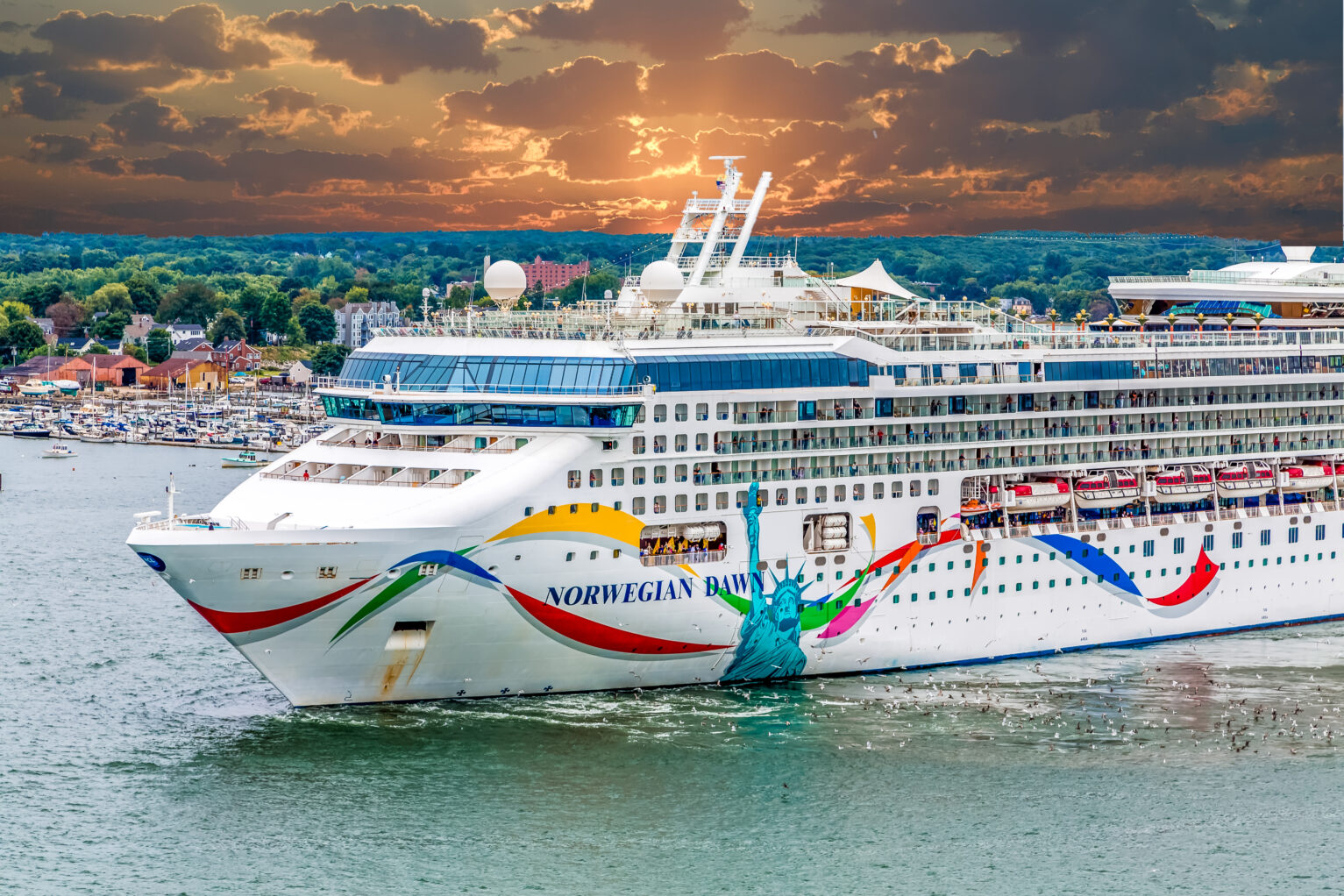
Finding the best senior travel insurance providers
The good news is that a range of insurance providers offer comprehensive cover and cruise cover for older travellers. The age-old advice is to compare between policies and decide what’s best for you.
However, here are some standouts.
Southern Cross Travel Insurance
Southern Cross Travel Insurance won the 2023 senior travel insurance awareness for Finder. It scored highly for its age limit cap, Covid benefits and cancellation fees. Southern Cross has a very inclusive age limit of 118.
World Care Insurance and HIF
Next, in Finder’s awards for World Care Insuranc e and HIF, both have no age limit, meaning there are no obstacles for seniors.
As previously quoted in the story, Ms Avery uses 1Cover insurance , which offers her cruise cover as a senior traveller. She has been very happy with their service.
Choice recommends
Jodie Bird, an insurance expert from Choice, suggests Allianz , Worldcare , Cover-more , Insurance and Go, and NIB as high-level policies covering ages up to 100.
Smoney recommends
Smoney also rates Insure and Go as a leading option, with unlimited medical care, highly rated coverage for travel delay expenses, and unlimited coverage for trip cancellations for those up to 100. Insure and Go will also consider all pre-existing conditions; many are covered at no extra cost.
Which pre-existing conditions are difficult to cover?
Ms Bird says travel insurance often automatically covers a range of conditions. However, you likely need to pay extra to get covered for some conditions.
Chronic conditions
“Many policies will have a list of conditions they automatically cover. But for some conditions, you must apply for cover and maybe pay an extra premium. This includes Chronic lung conditions, cancer, anxiety, depression and heart-related medical conditions.
Awaiting surgery
“Conditions for which you’re awaiting surgery, treatment, investigation, or procedures will commonly be excluded, as will conditions for which you may be travelling to seek medical treatment.”
Pre-existing conditions
Ms Bird also mentions that some pre-existing conditions have become more difficult to get covered since COVID-19, and if you have a specific condition, you should always get on the phone and compare providers.
Shop around for the best travel insurance deal
“Unfortunately, several insurers that CHOICE used to recommend as more likely to cover difficult existing conditions stopped operating during the travel lockdowns. So, for these conditions, you will need to shop around several insurers, either online or on the phone, and get a comparison of the cost to cover your specific condition.”

How much will insurance cost seniors?
Insurance prices can skyrocket as you get older. Ms Bird reveals a significant difference even for those in their 60s versus their 70s.
“CHOICE looked at premiums for travellers visiting Bali for around 11 days to two weeks. We found that a single traveller aged over 70 paid 3.5 times more for travel insurance than people in their 60s, and that’s before getting coverage for existing medical conditions.
“Most insurers will increase premiums as you get older. However, it can still vary a lot between insurers, so it’s worth shopping around for the best value for money.”
Using the Finder travel insurance comparison tool
Using Finder’s comparison tool , a two-week cruise to France, Italy and Spain will cost $1134 (assuming no pre-existing conditions) with South Cross Travel Insurance . The next cheapest are Travel Insurance Saver , Travel-Protect and WAS Insurance , each in the $2250 – $2350 range. However, Finder’s comparison tool does not include every insurance provider.
It’s also worth noting that insurance prices will increase with the length of your holiday. If the same cruise were six weeks long, Southern Cross would charge $2500, and the other providers would be in the $4600-4700 range.
If you took the same two-week cruise with Cover-More , it would cost $2283. This includes cruise cover and cancellation cover up to $40,000.
If you were with Allianz or World Care, it would cost you $1331.88. This includes up to $20,000 cancellation cover and a cruise pack. With NIB, the cruise insurance would cost you $1135, with cruise cover automatically included in the price.
Travel insurance for seniors made easy
Navigating the insurance market as a senior traveller requires diligence. Still, with the proper guidance and comparison tools, seniors can find tailored coverage that meets their needs without breaking the bank.

I shop around and have never had any issues with RACQ Travel insurance. They even paid out on covid claims from the start of it all. They also have member discounts which makes the price quite reasonable.
On my next trip both flights and cruising, coming up at the end of 2023 I used Qantas as their pricing and coverage was a lot cheaper than most others.
I wouldn’t recommend Insure & Go. When Air NZ cancelled our tickets to Napier 2 days prior to Cyclone Gabrielle the ‘unlimitted cover for trip cancellations’ that Insure & Go represented in the brochure, that we relied on, didn’t happen. Lots of ducking and weaving, attempting to rely on irrelevant parts of the contract.
They made an ex gratia offer of less that 25% of the claim, to settle the claim, which we eventually accepted.
Compared to this mob, Ned Kelly was a gentleman.
Nice to see that the seniors travel insurance is being highlighted. I’m British and judging by the price you are showing for Seniors in their 70s you Aussies are better off than in UK. I am 76 and was recently quoted £550 for a 7 day cruise around Mediterranean. Also uk insurance companies do not really like to insure seniors who are over 80yrs old. Thanks again for the article.
Effectively cruising is now restricted to the super rich.
Comments are closed.
Related Posts
Find out all you need to know from our professional Cruise Passenger team

Travel insurance costs are soaring – here’s how to save hundreds
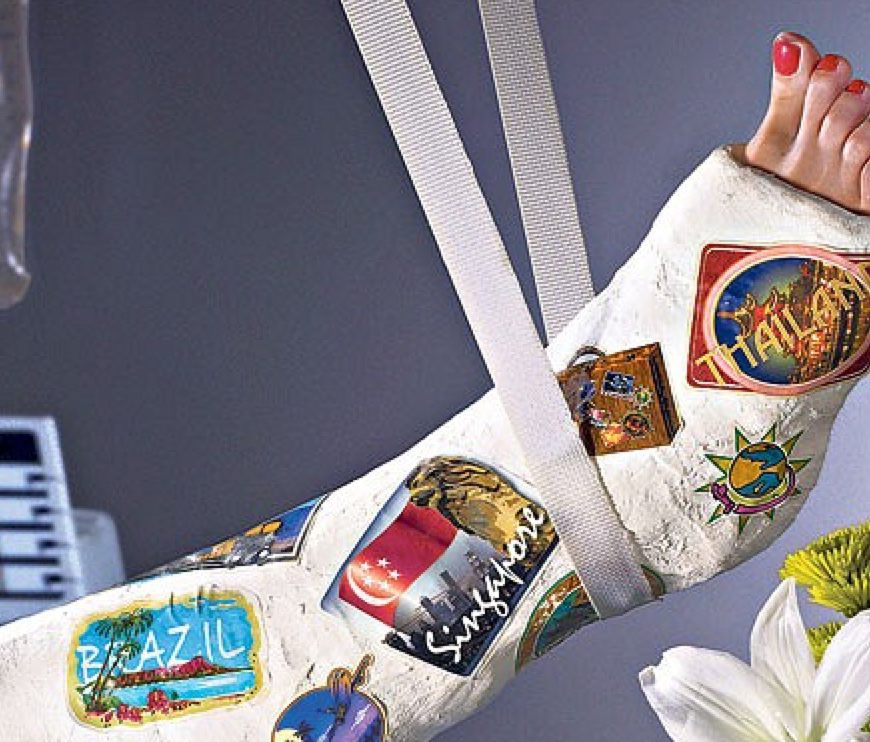
Cruise travel insurance: What you need to know

“A form of ageism”: Little known travel insurance clause that cost Michelle thousands

Cruise&Travel magazine is Australia’s No.1 publication for travel enthusiasts.
There are four issues per year, with each issue is packed full of must-read features, including cruise news, reviews, destination guides and the most enticing itineraries.
- Tips & Advice
- &Travel
- Cruise Planner
- Subscribe to the Cruise Passenger Newsletter
- Editorial Guidelines
- Privacy Policy
- Travel insurance Compare Our Plans Popular Benefits COVID-19 Benefits International Plans Domestic Plans Comprehensive Insurance Annual Multi-Trip Inbound Plan Cruise Ski & Snowboard Motorcycle & Moped Adventure Activities Seniors Medical Conditions
- Emergency assistance
- Travel alerts Cover-More App
- Manage policy
- Not sure? See full destination list.
COVID-19 Travel Insurance Cover
The below information relates to COVID-19 cover included in policies sold on or after 26 July 2023. For policies purchased prior to this date, please consult the relevant PDS and/or your Policy Wording.
IMPORTANT: Our customer service team cannot provide customers with personal advice over the phone or confirm if a claim will be approved. All claims need to be submitted for consideration via our claims portal . For general questions related to our Cover-More COVID-19 cover, please read the PDS and/or your Policy Wording, read our COVID-19 Travel Guide and review our COVID-19 FAQs before calling us. For helpful information on your destination's rates of COVID-19 infection, entry and quarantine requirements, and rules for public spaces, check our COVID-19 Travel Risk Tool before and during travel.

Protect your international or domestic trip with our COVID-19 benefits
Looking for travel insurance with COVID-19 cover for trips within Australia and overseas?
At Cover-More, we provide several COVID-19 travel insurance benefits across our international and domestic plans to help you book and travel with confidence. Yes, this means you can focus on planning your getaway knowing we’re by your side to support you during the coronavirus pandemic.
For more information on our travel insurance with COVID-19 cover, keep reading below or skip ahead to learn:
- What COVID-19 travel insurance cover is
- If Cover-More travel insurance offers cover for COVID
- What Cover-More’s COVID-19 benefits do cover
- What Cover-More’s COVID-19 benefits don’t cover
- What Cover-More international travel insurance plans cover COVID-19
- What Cover-More domestic travel insurance plans cover COVID-19
- Why choose Cover-More travel insurance
You can also read the COVID-19 travel insurance cover FAQs or get a quote online now.
What is COVID-19 travel insurance cover?
A travel insurance policy that includes cover for unforeseen COVID-19-related scenarios can help reduce the financial risk of travelling during the novel coronavirus pandemic. It is common for travel insurance with COVID-19 benefits to include cover for incidents relating to overseas medical expenses, trip amendment or cancellation costs, and additional expenses.
However, policies will vary from provider to provider, so it’s important to understand what you are – and aren’t – covered for when it comes to international and domestic travel insurance with COVID-19 cover when choosing the best travel insurance for you during the current pandemic.
Does Cover-More provide travel insurance with COVID-19 cover?
We have provided some COVID-19 travel insurance cover since December 2020 to help support our Cover-More customers who continued to travel throughout the coronavirus pandemic.
As of 26 July 2023, many COVID-19 travel insurance benefits are still available on all our plans; however, coverage varies between our International Plans and Domestic Plans, and across our three tiers of cover: Basic, Comprehensive, and Comprehensive+.
Before deciding if our travel insurance with COVID-19 cover is right for you, we recommend you read the PDS and compare our International Plans ' and Domestic Plans' COVID-19 cover below.
What do Cover-More’s COVID-19 benefits cover?
At Cover-More, our COVID-19 travel insurance benefits help protect you from unforeseen expenses related to the current coronavirus pandemic. These benefits include:

Cover for COVID-19 Overseas Medical Costs*#~

Cover for COVID-19 Amendment or Cancellation Costs*^

Cover for COVID-19-Related Additional Expenses*#^
What don’t cover-more’s covid-19 benefits cover.
Unfortunately, our COVID-19 travel insurance cover can’t protect against absolutely every scenario resulting from the global coronavirus pandemic. To help provide clarity from the get-go, our travel insurance COVID-19 benefits don’t cover the following:
Government Border Closures, Lockdowns, Self-isolation, or Quarantine
Mandated COVID-19 Tests (PCRs and Rapid Antigen Tests)
Close Contacts of a Person Diagnosed with COVID-19
Cruise Cabin Confinement Costs Related to COVID-19
To ensure you understand the COVID-19 scenarios you aren’t covered for – plus more details on any general exclusions beyond our COVID-19 travel insurance benefits – we encourage you to read the PDS .
Ready to travel? To understand the latest information on COVID-19 and government travel restrictions when planning your trip, please visit smartraveller.gov.au or the relevant Australian State or Territory Government website before getting a quote online .
Important reminder: No travel insurance cover for COVID-19 is provided if you enter a country with an active “Do not travel” warning from the Australian Government if the reason (or one of the) reason(s) for the advice was the presence of COVID-19 or if you do not follow travel advice or warnings published in the mass media. To find out the current overall advice rating of your intended destination, visit Smartraveller’s destinations page .
What COVID-19 cover do Cover-More’s international travel insurance plans provide?
If you’re wanting to find the best COVID-19 travel insurance cover for your overseas trip, we can help. At Cover-More, we offer three tiers of international travel insurance with COVID-19 cover to assist you in finding the right cover for your trip, travel style and budget.
You can compare all the benefits of our International Plans here or compare our international Cover-More COVID-19 cover below:
~Medical cover will not exceed 12 months from onset.
Please note: If the amount of Amendment or Cancellation Costs cover shown on your Certificate of Insurance is less than the maximum limit listed above, the Amendment or Cancellation Costs amount shown on your Certificate of Insurance will be the maximum cover available.
For full details on our international COVID-19 travel insurance cover, please read the PDS .
Ready to cover your overseas trip? You can get a quote online now.
Tip: Want protection against unforeseen COVID-19 scenarios both before and during your international holiday? Consider purchasing our International Comprehensive Plan or Comprehensive+ Plan with Amendment or Cancellation Costs cover included as soon as you book any part of your trip to benefit from pre-trip protection.
What COVID-19 cover do Cover-More’s domestic travel insurance plans provide?
If you want to protect your Australian trip with domestic travel insurance with COVID-19 cover, we can help provide extra peace of mind. Whether you’re planning a city break in one of our beautiful major cities or planning a relaxing escape to the countryside, our travel insurance could help prevent unforeseen expenses from ruining your trip.
You can compare all the benefits included in our Domestic Plans here or view the tables below to compare our domestic travel insurance COVID-19 cover for Australian trips:
Please note: If the amount of Amendment or Cancellation Costs cover shown on your Certificate of Insurance is less than the maximum limit listed above, the Amendment or Cancellation Costs amount shown on your Certificate of Insurance will be the maximum cover available.
To understand more about our domestic COVID-19 travel insurance cover for Australian residents, please read the PDS . If you’ve got questions about our domestic cover – including why we can’t cover medical costs in Australia – check out our domestic plans and domestic FAQs pages.
If you’re a non-Australia resident looking to protect your trip to Australia, our Inbound Plan may be suitable for you. To find out more, read our Inbound Plan page and consult the PDS for details on our Inbound COVID-19 benefits.
Ready to cover your Australian trip? You can generate a quote online now.
Tip: Looking to protect your Australian trip from unexpected COVID-19 events that occur before you leave home? Consider purchasing our Domestic Comprehensive Plan or Comprehensive+ Plan with Amendment or Cancellation Costs cover included as soon as you book any part of your trip to benefit from pre-trip protection.
Why should I choose to travel with Cover-More travel insurance?
You can trust our Cover-More team to support you with more than COVID-19 travel insurance benefits. Our customers choose to travel with us by their side because we provide:

24/7 Access to Our Emergency Assistance Team
Cover for Over 80 Adventure Activities as Standard

35+ Years of Travel and Medical Assistance Expertise
…and more. To learn more about us and our cover, visit our Cover-More Australia About Us page and read about our most popular benefits here .
FAQs about our Cover-More COVID-19 travel insurance cover
Good news: we’ve answered common questions about our Cover-More COVID-19 cover over on our COVID-19 FAQs page and within our COVID-19 Travel Guide .
If you can’t find the answer to your general question on this page, you can call our friendly team on 1300 72 88 22 or speak with them via Live Chat during Australian business hours.
Eager to travel again?
Find out how much it costs to protect your international or domestic trip with our travel insurance.
*Limits, sub-limits, conditions, and exclusions apply. For full details on exactly what’s covered by our COVID-19 travel insurance benefits, please read our Product Disclosure Statement (PDS) document. ~Medical cover will not exceed 12 months from onset. #Cover for medical costs related to COVID-19 is not available on our Domestic Plans. ^A special excess will apply to COVID-19 claims under the Amendment or Cancellation and Additional Expenses sections of the policy. If you make a claim that falls under both sections, the higher special excess will be deducted. The special excess applies in addition to any other applicable excess. You cannot remove this special excess.
The information contained on this page is indicative and for illustrative purposes only to help provide information regarding likely coverage under the relevant terms and conditions of a policy. The information relates to policies sold on or after 26 July 2023, is correct at the time of writing on 20 June 2023, and may change at any time, so be sure to check here regularly for updates. For definitive confirmation for your situation, you will need to submit a claim for consideration via our online claims portal .

IMAGES
COMMENTS
Our Cruise Cover benefit includes cover for onboard emergency medical and dental expenses and ship-to-shore medical expenses incurred by travellers on multi-night cruises. If you fall ill with COVID-19 while on board a cruise, we can help you financially and provide emergency assistance support if required.
You can buy a travel insurance policy with cruise benefits through our website or by calling us on 1300 72 88 22. To get a cruise quote online: Enter the area of travel you want cover for in the quote box. For international trips with cruises, choose the country, region, or "Anywhere in the World". For domestic trips with cruises, choose ...
Health Insurance Doesn't Cover Everything. According to the US Department of State - Bureau of Consular Affairs some domestic health insurance may cover "customary and reasonable" costs overseas. However, they often won't pay for a medical evacuation back to the US which can cost upwards of $50,000. That's where travel insurance can help.
For all multi-night cruise travel By adding Cruise Cover all of the policy benefit sections included in the plan You chose will apply for a multi-night cruise. The Cruise Cover benefits in the table following will ... Cover-More Insurance Services Pty Ltd ABN 95 003 114 145, AFSL 241713 (Cover-More) acts on behalf of the insurer
You can buy a travel insurance policy with cruise benefits through our website or by calling us on (0800) 500 225. To get a cruise quote online: Enter the area of travel you want cover for in the quote box. For international trips with cruises, choose the country or countries based on where you will spend most port days on your trip.
For cruise benefits to apply, your travel insurance policy must include our Cruise Cover and must be purchased before you leave home. This also includes before you catch any flights or transportation required to get to your departing port. To find out how much it costs to include our Cover-More cruise insurance benefits in your travel insurance ...
With nearly thirty years of experience and more than 2.2 million journeys every year, Cover-More knows what travellers need. That's why Carnival Cruise Line recommends Cover-More Travel Insurance for guests from Australia, which covers general medical expenses overseas, hospitalisation and more so you can avoid unforeseen expenses.
Cruise travel insurance is an added layer of coverage to your travel plans, specifically geared toward cruise trips. It is a type of insurance you would purchase specifically geared to protect against cruise-specific incidents: Port-of-call itinerary changes made by the cruise line. Last-minute cancellations made by the cruise line.
Cruise travel insurance can cover many of these scenarios, but coverage varies by policy and provider. I'll explore the essential aspects of travel insurance for a cruise vacation in this comprehensive guide. Based on personal experience, extensive research, and advice from other passengers, I hope to give the best recommendations on ...
Comprehensive cover. Buy cover for cancellation (up to $15,000 if it's just you or up to $20,000 if it's your family too - this is already included if you have a World Mastercard), rearrangement and a range of other extras - like rental vehicle insurance excess cover and travel delay expenses. Limits apply.
Cruise insurance is a specific type of travel insurance you can buy to help cover the costs of expenses caused by covered events, such as trip cancellations, delays or medical emergencies. Many ...
Cruise insurance is a specific type of travel insurance policy that covers accidents, injuries and other potential mishaps that could occur during a cruise holiday. Bear in mind that the European Health Insurance Card (Ehic) and new Global Health Insurance Card (Ghic) won't cover the cost of a rescue from a cruise ship , so relying on them ...
The average cost of cruise insurance is $453 per trip, based on our analysis of rates for 40 cruise travel insurance plans. Cruise insurance costs will generally depend on your age and the cost ...
Remember that while many cruise travel insurance policies cover mishaps of this kind, they usually don't help if negligent behaviour or alcohol is involved. ... Insurance administered by Cover-More Insurance Services Pty Ltd (ABN 95 003 114 145, AFSL 241713) on behalf of the product issuer, Zurich Australian Insurance Limited (ABN 13 000 296 ...
For Australian guests, please obtain a quote here with Cover-More Travel Insurance or phone 13 24 94 (AU). Disclosure: P&O Cruises Australia has a referral arrangement with Cover-More and may receive a fee or commission if you choose to purchase an insurance product from Cover-More. Limits, sub-limits, conditions and exclusions apply.
For details: https://47-0351.covermore.com. Travel Insurance is offered and provided by Cover-More Inc., a company of Zurich, as made available through CWC Travel Inc., for Costco Travel. Plans are not available to residents of New York at this time. The product descriptions provided here are only brief summaries.
Your claim will be managed by Cover-More, our travel insurance provider. Make a claim online or call Cover-More, 8am-5pm Mon - Fri and 9am-4pm Sat (Sydney/Melbourne time) Within Australia: call Cover-More on 1300 467 951. From overseas: call Cover-More on + 612 8907 5060 (call charges may apply)
Qantas Travel Insurance policies offer some cruise cover benefits depending on which policy you take out. We've listed the benefits below. If you have any questions, or would like to chat through your options, please give us a call on 13 49 60 (within Australia). We'll be happy to help.
If you're taking an ocean or river cruise, or either form part of your trip, you'll need cruise travel insurance or cruise cover. We offer two ways to cover your cruise holiday. Our comprehensive policy gives you up to unlimited emergency medical and repatriation expenses, up to £5,000 cancellation cover, up to £2,500 baggage cover and more.
How can I contact Cover-More travel insurance? General enquiries: 1300 72 88 22. Emergency Assistance: +612 8907 5619. For toll-free assistance phone numbers in popular destinations, you can find all our Cover-More's emergency numbers here. Claims: 1300 36 26 44. Complaints: you can submit a complaint via the online form on this page.
A couple of questions: 1. Does anyone know if the AMEX Travel Insurance extends to cover cruises? I am struggling to find this information on the website so just wondered if anyone has used it before for a cruise? 2. If i generate the £400 travel spend bonus and book…
Trip interruption insurance covers non-refundable travel expenses—such as flights and hotels— if your trip is interrupted for a reason covered by a policy. Expenses that can be covered include:
To learn about our coronavirus travel insurance benefits, please visit our COVID-19 cover page. You can also get a quote online now. For answers to frequently asked questions about our Cover-More COVID-19 and cancellation coverage, please read the below or contact us via Live Chat or on 1300 72 88 22 during Australian business hours.
This includes cruise cover and cancellation cover up to $40,000. If you were with Allianz or World Care, it would cost you $1331.88. This includes up to $20,000 cancellation cover and a cruise pack. With NIB, the cruise insurance would cost you $1135, with cruise cover automatically included in the price. Travel insurance for seniors made easy
Compare our travel insurance plans and get a quote online today to see how affordable protecting your travel dreams can be. Does Cover-More offer seniors travel insurance cover for cruises? Cruises are great for senior travellers. Visiting multiple locations from the comfort of a luxury liner makes for a relaxing holiday.
Cruise travel insurance can cover you if you're taking a cruise round the Mediterranean, for example. These tend to cover missed departures and excursions. ... insurance. This could be useful if you're planning on hiking, scuba diving or skydiving, for instance. Regular travel insurance policies are unlikely to cover more thrilling ...
COVID-19 Travel Insurance Cover. The below information relates to COVID-19 cover included in policies sold on or after 26 July 2023. For policies purchased prior to this date, please consult the relevant PDS and/or your Policy Wording.. IMPORTANT: Our customer service team cannot provide customers with personal advice over the phone or confirm if a claim will be approved.